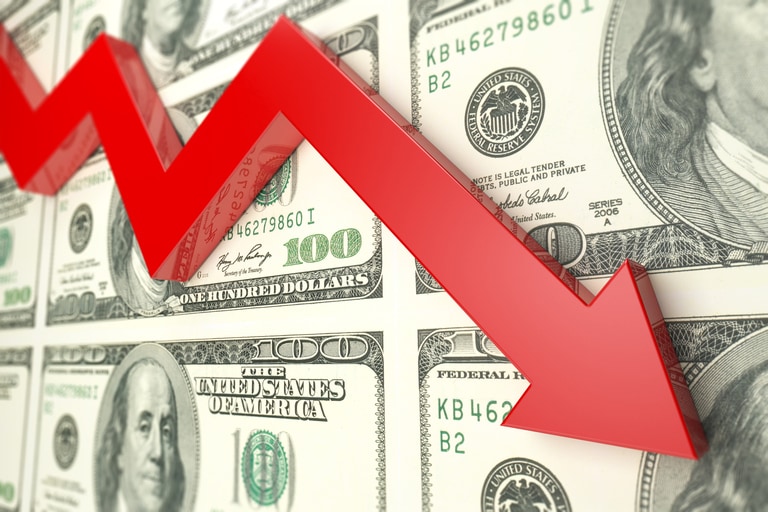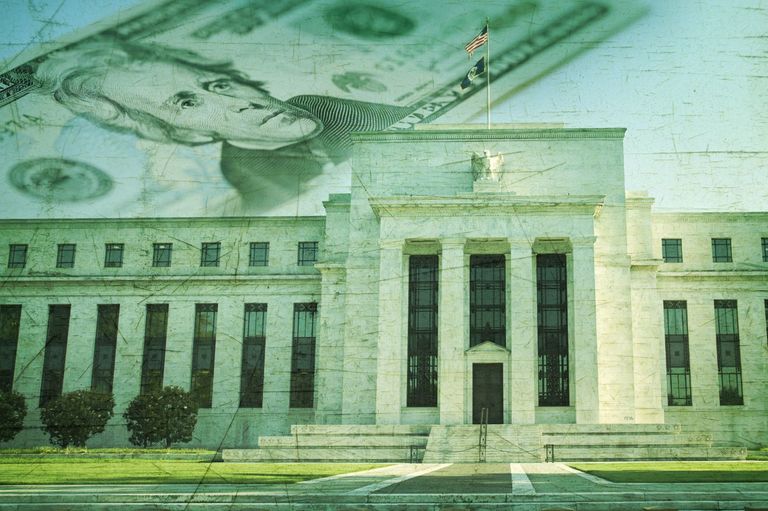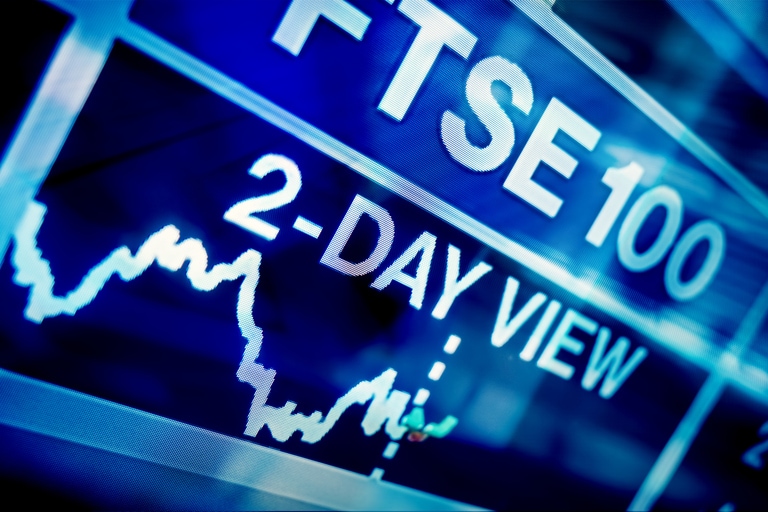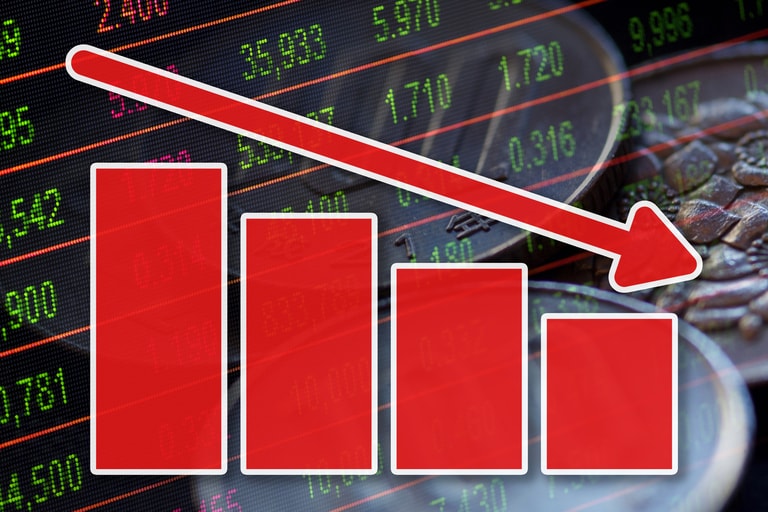The top macroeconomic announcements this week both concern the US. On Thursday we’ll get the first estimate of US fourth-quarter gross domestic product, followed on Friday by the December reading of the US Federal Reserve’s preferred inflation gauge. As earnings season continues, Microsoft, easyJet and Tesla are gearing up to announce their latest results.
KEY ECONOMIC AND COMPANY EVENTS (23-27 JANUARY):
Monday 23 January
No major scheduled announcements
Tuesday 24 January
Manufacturing and services flash PMIs (January)
Germany and France have seen a pickup in economic activity in recent months as energy prices have dropped. Germany’s manufacturing purchasing managers’ index (PMI) rose to 47.1 in December – still in contraction territory, but up from 46.2 in November and the low of 45.1 in October. German services PMI has followed a similar pattern, rising to 49.2 in December from a two-year low of 45.0 back in September.
It's a similar story in France, where manufacturing PMI increased to 49.2 in December from 48.3 in November, while the country’s services PMI ticked slightly higher to 49.5 in December from 49.3 a month earlier. Activity in France’s services sector has remained resilient, partly because the government’s energy subsidies cushioned French households from the worst effects of soaring prices.
The UK’s manufacturing PMI fell to 45.3 in December, down from 46.5 in November, and the downtrend that persisted through 2022 looks set to continue in the near term. However, British services PMI increased to 49.9 in December, up from 48.8 a month earlier.
After a pessimistic 2022, businesses in Germany, France and the UK will be hoping for a further recovery in economic activity in 2023.
Associated British Foods Q1 results
After a difficult 2022, shares in Associated British Foods have risen almost 50% since falling to 10-year low last September as the business posted positive full-year results, despite challenging economic conditions.
In November, the owner of brands such as Twinings, Silver Spoon and the retail chain Primark reported annual revenue of almost £17bn, up 22% year-on-year. Adjusted profit before tax rose 49% to £1.35bn in the year to 17 September. Primark, which accounts for just under half of all sales, saw revenue rise 38% to £7.7bn as adjusted operating profit and margins also improved, despite the challenge of rising energy prices and input costs. In the new fiscal year, Primark’s adjusted operating margin is expected to fall below 8% due to higher costs and because prices will be kept unchanged for both the winter and summer ranges.
Across the rest of the business, the grocery division posted a modest decline in operating profits and margins in the year to September due to the higher cost of wheat, energy and distribution. Revenue from ABF’s sugar unit increased, as did operating profits, though margins declined. The agriculture business followed a similar pattern. Investors awaiting the Q1 numbers will be hoping that ABF can match its peers in reporting solid performance over the pre-Christmas period.
Microsoft Q2 results
After Microsoft reported its Q1 results in October the shares slipped to their lowest levels since January 2021. Although the company beat expectations on revenue and profits, some investors are concerned that the business may not be able to sustain the type of growth that markets have become used to.
There were some weak spots in the Q1 results. Although overall revenue grew 11% year-on-year to $50.12bn, revenue from Windows-equipped computers fell 15% and Xbox revenue declined 3%. Growth was driven by Microsoft’s Intelligent Cloud business, which saw revenue rise 20% to $20.3bn, though markets were expecting an even stronger increase.
As for its Q2 guidance, Microsoft warned that weaker demand for PCs could send Windows revenue tumbling by around 30%. The company is also facing scrutiny over its intention to acquire Call of Duty maker Activision Blizzard, with regulators in the US, the EU and the UK expressing competition concerns. Microsoft’s Q2 earnings are expected to come in at $2.30 a share.
Wednesday 25 January
Bank of Canada interest rate decision
The Bank of Canada put a cat among the pigeons in October when it raised interest rates by a less-than-expected 0.5 percentage points to 3.75%, perhaps recognising earlier than most central banks that raising rates too aggressively could do more harm than good. In December, the BoC raised rates by a further half-point to 4.25% amid growing concerns that higher rates could create problems in the housing market.
With Canada’s upcoming interest rate decision set to be taken one week before the US Federal Reserve meets to discuss interest rates, many market participants are looking north of the border for a steer in terms of whether the Fed might slow the pace of tightening. Consensus estimates suggest that the BoC may step down to a 0.25-point rate hike after headline inflation eased to 6.3% in December, down from 6.8% in November, even though core price growth remained little changed.
easyJet Q1 results
The easyJet share price hit a ten-year low of 276.87p in October as investors adopted the brace position ahead of the full-year results announcement in November, which saw the airline post a pre-tax loss of £178m. Although it was easyJet’s third annual loss in a row, it marked an improvement on the loss of £1.1bn a year earlier.
The company is hoping that this year will produce further improvement. With easyJet shares up 33% since the turn of the year, investors seem to be betting that this year will indeed be better. Things could scarcely get much worse. Last year passengers experienced major disruptions at airports in the UK and on the continent as runway capacity constraints and staff shortages caused lengthy delays and thousands of flight cancellations.
In Q4, easyJet flew at 92% of seating capacity though this was achieved in part because capacity fell during the quarter due to flight caps at Gatwick and Amsterdam. For 2022 as a whole, the airline flew at 85.5% of capacity, up from 72.5% in 2021, but still below 2019 levels of 91.5%.
The budget carrier's fuel costs for the first half of 2023 are 74% hedged, up from 69% a few weeks ago, and up from 51% hedged in the second half of last year. The airline has said that it expects to fly around 38m seats in the first half of this year, up 25% year-on-year, and 56m seats in the second half of the year, up 9% year-on-year. The company also says that is taking steps to become more resilient and avoid a repeat of last summer’s travel chaos. Meanwhile, easyJet holidays is expected to add to the bottom line with a target of 30% growth this year, having delivered revenue of £368m and a profit of £38m in 2022.
Tesla Q4 results
With Tesla shares down more than 60% in the last year, questions are being asked as to whether the bubble has burst for the electric vehicle (EV) maker. Since November 2021’s record high, the shares have slumped from around $400 to an intraday low this month of a little over $100 – a huge decline for a business that is selling more cars than ever.
In Q4 Tesla delivered a record 405,278 vehicles up 40% year-on-year, as price cuts in China spurred growth. This pushed total deliveries last year to 1.4m, also a new record. Annual revenue is expected to have risen by more than 50% versus 2021 to around $80bn, though margins are likely to have been squeezed as costs increased.
The shares slipped after Q3 revenue and margins fell short of expectations. The concern among investors is that this trend could continue. Gross margin came in at 27.9% in Q3, and may have tightened further in Q4 on the back of rising raw materials costs.
Tesla has also warned that battery supply chain issues could be a limiting factor in the medium and long term. At the Q3 sales call CEO Elon Musk said that the price of lithium, a key component in EV batteries, was “crazy expensive”. Another concern is that rising electricity prices could push up the cost of running an EV. On the plus side for Tesla, the weakening of the US dollar may have helped boost revenue and profits in Q4, as goods sold in dollars became cheaper for overseas customers. In other news, Tesla this month announced further price cuts of up to 20% in the US and Europe. The company’s Q4 earnings are expected to come in at $1.15 a share.
Boeing Q4 results
Despite posting a Q3 loss of $3.3bn, the Boeing share price has gone from strength to strength since September, reversing the decline in the first nine months of last year. Revenue in Q3 grew 4% year-on-year to $15.96bn, as a 20% fall in revenue from its defence, space and security division was offset by a 40% increase in revenue on commercial aeroplanes.
The defence, space and security business saw its operating margin fall to negative 52.7% in Q3, mainly due to “$2.8 billion of losses on certain fixed-price development programmes, driven by higher estimated manufacturing and supply chain costs, as well as technical challenges,” according to the company’s report. The unit has an order backlog worth around $55bn, 31% of which are overseas orders.
On the commercial aircraft front, Boeing delivered nine of its 787 Dreamliner aircraft in Q3. In total, 112 aircraft were delivered during the quarter. The company has a backlog of 4,300 planes to deliver, at a value of $307bn. In December Boeing announced that in 2022 it delivered 480 plans and won 774 net new orders, having secured orders from United Airlines for 100 Boeing 787s and 100 of its 737 MAX aircraft. For Q4, the company is expected to post profits of $0.47 a share.
Thursday 26 January
US Q4 GDP
After contracting 1.6% in Q1 and 0.6% in Q2, the US economy returned to growth in Q3, expanding 3.2%. The expansion was driven by increases in exports, consumer spending and government spending.
The first estimate of Q4 GDP is likely to show that growth slowed from the strong performance in Q3. Economists’ expectations point to an increase of 2.5%, but given that consumer spending appears to have slowed in recent months there could be downside risk to that estimate.
Diageo half-year results
Diageo’s challenge this year will be to repeat or better its performance in the year to June 2022, when net sales grew 21.4% to £15.5bn, driven by its premium brands of scotch whisky, tequila, vodka and gin. Sales of Johnnie Walker rose 34%, while tequila sales rose 55%. On a regional basis, Europe saw sales of spirits rise 24%, while Latin America’s 45% sales growth was boosted by the acquisition of Casa UM, owner of the mezcal brand Mezcal Unión.
This fiscal year, management expect to see organic net sales growth of between 5% and 7%, and organic operating profit in the range of 6% to 9%, figures that were reiterated at the AGM in October. Diageo’s share price has been trading in a tight band over the last six months, and is more or less unchanged since the company reported full-year results in July.
Friday 27 January
US core PCE price index (December)
The core personal consumption expenditures (PCE) price index, said to be the Federal Reserve’s preferred measure of inflation, increased 4.7% in the year to November, down from 5% in October. If this inflation gauge eased further in December, that could amplify calls for the Fed to slow the pace of its next interest rate rise to 25 basis points. What markets won’t want to see in the run-up to the Fed’s end-of-month meeting is for the core PCE price index to jump back up towards 5%.
US personal spending (December)
Growth in US personal spending has stalled in recent months. Personal spending increased just 0.1% month-on-month in November, down from 0.9% in October, suggesting that US consumers are becoming more cautious amid concerns about the rising cost of living. Consensus estimates suggest that personal spending may have contracted 0.1% in December.
INDEX DIVIDEND SCHEDULE
Dividend payments from an index's constituent shares can affect your trading account. View this week's index dividend schedule.
SELECTED COMPANY RESULTS
| MONDAY 23 JANUARY | RESULTS |
| Bank of Hawaii (US) | Q4 |
| Brown & Brown (US) | Q4 |
| TUESDAY 24 JANUARY | RESULTS |
| Accrol Group (UK) | Half-year |
| Associated British Foods (UK) | Q1 |
| Capital One Financial (US) | Q4 |
| Danaher (US) | Q4 |
| Invesco (US) | Q4 |
| Johnson & Johnson (US) | Q4 |
| Microsoft (US) | Q2 |
| Oxford BioDynamics (UK) | Full-year |
| Union Pacific (US) | Q4 |
| Verizon Communications (US) | Q4 |
| WEDNESDAY 25 JANUARY | RESULTS |
| Abbott Laboratories (US) | Q4 |
| AT&T (US) | Q4 |
| Automatic Data Processing (US) | Q2 |
| Boeing (US) | Q4 |
| easyJet (UK) | Q1 |
| Hargreaves Services (UK) | Half-year |
| International Business Machine [IBM] (US) | Q4 |
| Kimberly-Clark (US) | Q4 |
| Levi Strauss (US) | Q4 |
| Nasdaq (US) | Q4 |
| NextEra Energy (US) | Q4 |
| Tesla (US) | Q4 |
| Watkin Jones (UK) | Full-year |
| THURSDAY 26 JANUARY | RESULTS |
| Comcast (US) | Q4 |
| Diageo (UK) | Half-year |
| Dow (US) | Q4 |
| IG Group (UK) | Half-year |
| Intel (US) | Q4 |
| Marsh & McLennan (US) | Q4 |
| Mastercard (US) | Q4 |
| Rank Group (UK) | Half-year |
| T Rowe Price (US) | Q4 |
| Visa (US) | Q1 |
| FRIDAY 27 JANUARY | RESULTS |
| American Express (US) | Q4 |
| First Hawaiian (US) | Q4 |
Note: While we check all dates carefully to ensure that they are correct at the time of writing, company announcements are subject to change.
Disclaimer: CMC Markets is an execution-only service provider. The material (whether or not it states any opinions) is for general information purposes only, and does not take into account your personal circumstances or objectives. Nothing in this material is (or should be considered to be) financial, investment or other advice on which reliance should be placed. No opinion given in the material constitutes a recommendation by CMC Markets or the author that any particular investment, security, transaction or investment strategy is suitable for any specific person. The material has not been prepared in accordance with legal requirements designed to promote the independence of investment research. Although we are not specifically prevented from dealing before providing this material, we do not seek to take advantage of the material prior to its dissemination.







